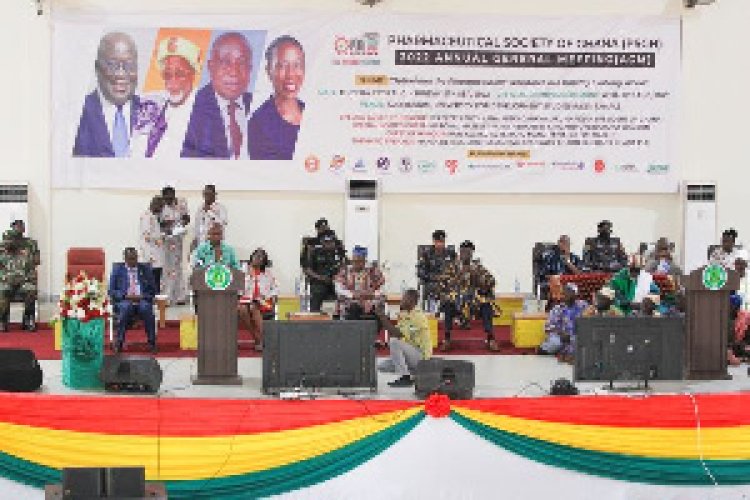Members of the Pharmaceutical Society of Ghana (PSGH) have stressed the need for the central government to consider incretment of the incentives to encourage pharmacists to accept postings to deprived communities in the country.
They further stressed that the government must ensure that the conditions of service of public sector pharmacists must be fully implemented with the urgency it deserves.
They maintained that the government must ensure that the pharmacists trained to vaccinate are currently limited to giving COVID-19 vaccines.
They noted that it is important to expand the scope to include other routine vaccines such as vaccines on the EPI programme as doing so will provide wider coverage and differentiated services for Ghanaians and other residents who may need them.
They made the call to government when they hold their Annual General Meeting in Tamale in the Northern region under the theme: “Optimizing the Pharmaceutical Workforce in a Rapidly Evolving World”.
The objective of the AGM was to explore the opportunities for enhanced skills and avenues for pharmacists to improve regulation, maximize industrial capacity and optimize health outcomes given technological advancements, global and local economic constraints, and emerging and re-emerging diseases.
The AGM noted that a knowledgeable, skillful, innovative, and motivated pharmaceutical workforce is imperative for positioning the country as a pharmaceutical manufacturing hub in the West African sub-region and to ensure high quality of care for Ghanaians.
In the current global scheme of things, innovation is necessarily how health systems would be sustained. It is crucial that deliberate strategies are formulated and implemented to see this through.
In this respect, the following were agreed on:
1.1 More pharmacists must be trained and supported to take up specialist roles in industrial pharmacy, public health, and clinical practice.
The AGM, therefore, calls on the Ministry of Health to increase its financial and technical support for the Ghana College of Pharmacists to enable it to roll out advanced courses pertinent to readying pharmacists for the varied roles required for pharmacy practice in Ghana and to handle the existing challenges of the health system and those in the foreseeable future.
The AGM acknowledged the need for advanced scope of community pharmacy practice in Ghana. This new paradigm would include medication therapy management, patient-focused, immunization, first aid services, dispensing, and adherence counseling.
To facilitate these, the Pharmacy Council-approved standard operating procedures guidelines for use in community pharmacies, which the AGM accepted, will serve to improve efficiency and reduce errors to the barest minimum. These are painstaking efforts to improve the services of pharmacists in the community.
The AGM noted that the number of pharmacists trained per year had escalated significantly in the last few years. It is worth noting that the high numbers of pharmacists being churned out annually follows from the increased intake of students admitted by the schools of pharmacy.
Considering the hands-on nature of pharmacy training, a number of concerns arise including inadequate infrastructure and faculty members, a limited number of, and lack of remuneration for preceptors leading to poor experiential training. The AGM agrees that:
The Ministry of Health, the Pharmacy Council, and the Authorities of the Universities with Schools of Pharmacy should address the high intake of pharmacy students and its attendant challenges.
The training of PharmD graduates is oriented toward clinical practice to neglect other equally important areas of practice. The AGM calls on the Schools of Pharmacy to consider reviewing the PharmD curricula to accommodate other areas of concentration.


 Freeman Koryekpor
Freeman Koryekpor 



































